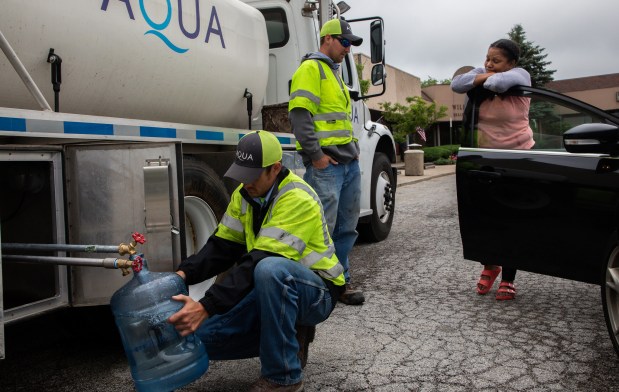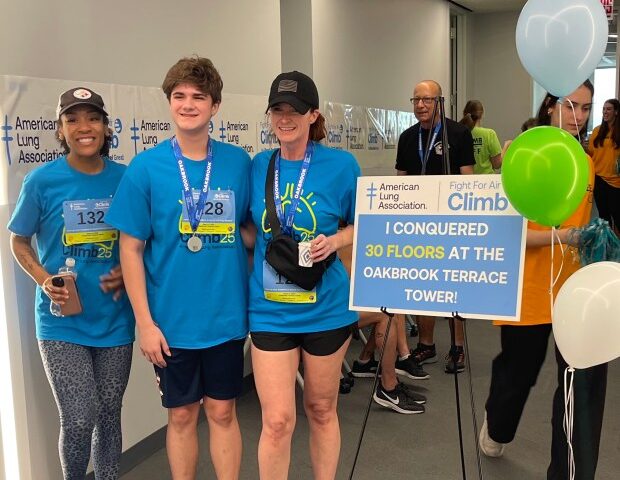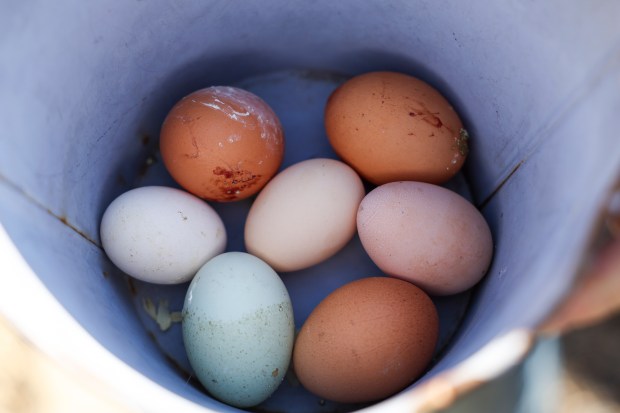University Park residents and officials expressed their concerns about Aqua Illinois’ proposed rate hikes at a hearing last week, but some officials claim the water utility did not adequately address or acknowledge these concerns.
“This is a form of gentrification when you push people out so that they’re not able to afford their water bills,” University Park’s village manager Elizabeth Scott said.
In January, Aqua, Illinois’ second-largest water utility serving parts of 14 counties, requested a rate increase that could raise monthly water bills by $30.
Justin Hamler, an associate pastor at First Baptist Church of University Park who attended an Illinois Commerce Commission public hearing Aug. 1 in Bourbonnais, said he hoped Aqua President David Carter, would be sympathetic toward the community’s concerns. Instead, he said residents were met with indifference.
“Aqua isn’t only taking advantage of University Park, they’re taking advantage of communities all around the state,” Hamler said. “A whole bunch of angry people in that room and the president, David Carter, who was there, didn’t seem to be moved by any of the stories of heartache and strife that he heard from community members all over.”
Gina Williams, a University Park trustee who attended the hearing, described Carter as “a deer in headlights,” noting his lack of response to the concerns raised by attendees.
“He was not personable about what we were saying at all,” she said. “It was very cold.”
In a statement, Carter said Aqua values customer’s feedback and remains dedicated to delivering quality water to those serviced by Aqua.
“We acknowledge the comments shared by University Park residents during our recent ICC meeting and want to reassure them that the water quality in University Park consistently meets state and federal drinking water standards, a fact acknowledged by the IEPA,” the statement reads.
Williams said many residents are already struggling to keep up with their monthly bills, compounded by steep property tax bills in the Southland this tax season.
“They are terrified, because there’s so many people … trying to pay the property tax and the regular utilities, and now you want to go up on our water bill,” Williams said.
Williams said many University Park families already have water bills ranging from $200 to $300 a month. Williams said while $30 might not seem significant to some, for working-class residents in a town where the median household income is about $60,000, it represents a substantial amount and adds to their financial strain.
“$30 is a lot of money in this day and age, because food and everything, gas, is higher, but the paychecks aren’t higher,” Williams said.
Carter said the rate increase, the first requested by Aqua in six and a half years, is needed to fund water system infrastructure improvements across the state.
“The money is needed to enhance and upgrade our infrastructure statewide, including University Park, to ensure safe and reliable water and wastewater services for years to come,” Carter said in a statement. “For residents in University Park seeking further information or assistance regarding their water quality, we encourage them to explore available resources at waterfactsil.com.”
The community is also dealing with the fallout from a years-long “do not consume” order placed by Aqua in 2019. The order came months after the water provider introduced a blended phosphate mix into University Park’s public water system, triggering a chemical reaction that officials claimed stripped away a protective layer in residential plumbing. This led to increased lead levels in the village’s water supply for roughly four years.
While Aqua has said testing has shown water provided to University Park customers has met all state and federal benchmarks for nearly three years, Williams said residents still do not trust the water.
Williams said Aqua, which has been providing jugs of water to the community in light of the contamination, notified residents the company will no longer distribute water beginning Aug. 9.
Davida Colquitt of University Park waits as workers from Aqua Illinois fill containers with drinking water at the Community Center in 2019. (Zbigniew Bzdak / Chicago Tribune)
Still, years of contaminated water have eroded trust in the provider, leading to a growing demand for a complete overhaul of the community’s water infrastructure, Scott said.
“I feel like there is a complete erosion of public trust when it comes to Aqua in this community,” she said.
Williams said residents are still afraid to use their showers, children still brush their teeth with bottled water, and others in the community are facing health issues they believe could be attributed to prolonged exposure to lead in their water supply.
Although the community is set to receive $900,000 to replace piping under kitchen sinks in homes with lead levels exceeding the action threshold of 15 parts per billion — following a recent consent order approved by Will County Judge John Anderson to resolve the lawsuit between state officials, University Park and Aqua Illinois — residents remain concerned that their bathroom faucets and other water infrastructure components are still deteriorated and in need of replacement.
However, Scott said the decision to replace the village’s infrastructure rests solely with Aqua. Aqua, a private water provider, does not have access to the billions in state revolving funds allocated for lead pipe remediation, making the village unable to secure these resources, she said.
The Illinois Commerce Commission is expected to rule on Aqua’s request in November. Regulators have the authority to approve, deny or alter the proposals based on evidence provided by the companies, ICC staff, advocacy groups and municipalities.
“I hope that they see that this is really not fair. Water is an essential, basic necessity, and this is price gouging,” Scott said.
smoilanen@chicagotribune.com





